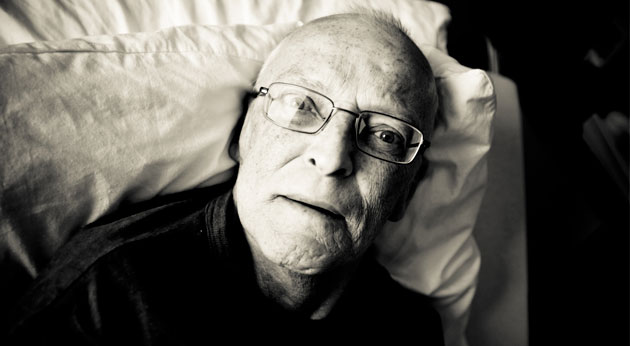Alex Greenwich MP plans to introduce his controversial Voluntary Assisted Dying Bill on October 14. Voluntary Assistant Dying (VAD) legislation has been enacted in five of Australia's six States – Victoria (2017), Western Australia (2019), Tasmania (May 2021), South Australia (June 2021) and – most recently – Queensland (Sept 2021). Proponents of VAD have now turned their sights on NSW, hoping that NSW will be the next “domino to fall”.
This timing is all wrong. Debating this during the Covid-19 pandemic prevents public participation and protest. (Or perhaps that is the point). At a time when we are under stay-at-home orders to protect the vulnerable members of our society, Greenwich is seeking to push through a Bill that poses a grave risk to the elderly. Given the findings of the Aged Care Royal Commission about the crisis in aged care, we should be addressing these issues to ensure that elderly Australian have the best possible case, including palliative care.
Advocates for VAD claim the moral high ground – that they are the compassionate ones. The implication being, of course, that those who oppose VAD are without compassion. Sometime, the implication is made explicit. For example, Peter FitzSimons says “we can expect fierce opposition to this legislation to come from mostly religious groups, lead [sic] by some Catholics who genuinely think that months of agony is all part of God’s plan, and cannot be opposed.”
To be clear, I do not know of anyone who argues against VAD on the basis that unrelieved agony is a necessary part of God’s plan. On the contrary, Christians have always been at the forefront in palliative care, and with modern palliative care almost no-one needs to endure intolerable suffering. Although VAD legislation is promoted as being necessary because of “intolerable suffering”, the bar is lowered considerably in the fine print. VAD is for a terminal illness where “suffering cannot be relieved in a way that the person considers tolerable”.
VAD hides behind euphemisms. It is not “compassion” to inject someone with lethal drugs. VAD is physician-assisted suicide, which puts the medical profession, who have a duty to care for the elderly and vulnerable, in an impossible position. The policy of the Australian Medical Association is that doctors should not be involved in ending a patient’ life.
It is not “compassion” to inject someone with lethal drugs.
But there is a distinctively Christian reason to oppose VAD.
Bearing one another’s burdens.
I have sat with, and prayed with, countless older saints in hospitals, nursing homes and hospices as the time of their death approached. Many have said to me “I don’t want to be a burden”. Our world is increasingly driven by utilitarianism, where people only have value when they are contributing members of society. If that is true, then as people loose capacity – physical or mental – they are a “burden” on society, and a “burden” on their families. VAD reinforces this destructive narrative, because it provides the terminally ill with the option of a last heroic act that can relieve society of one more burden.
Christians have a very different way of thinking about people, that doesn’t measure value by a person’s contribution to Gross Domestic Product. We need to flip this “burden” narrative, and help our ageing saints see that their infirmity is an opportunity to let others help bear their burdens, which to their friends and family is no burden at all. This is what Christians do – “bear one another’s burdens, and so fulfil the law of Christ” (Gal 6:2). In this condition, they are still ‘dying with dignity’, because dignity comes from being made in the image of God, not from our capacity to contribute.
"bear one another’s burdens, and so fulfil the law of Christ”
We should rightly be concerned that a decision to end one’s life might be coerced and not truly “voluntary” (and there are not sufficient safeguards in this Bill to prevent this). But an even great danger is that – because VAD legalises killing oneself – we become a society where choosing death voluntarily is increasingly normalised. This in itself creates an insidious pressure, much in the same way that the high prevalence of abortion has led to a deplorable expectation that young pregnant women should terminate an unplanned pregnancy. If the “normal” end for the terminally ill is by lethal injection, then it is not hard to imagine, emerging over time, a not-so-subtle pressure against “choosing” to prolong life with (expensive!) palliative care and “choosing” to put emotional and financial demands on your family as they support you in your last months. As soon as society legitimates the “choice” to end one’s own life, the alternative course of action also becomes a choice.
What can Christians do?
It is not too late to write to our NSW parliamentarians. The organisation HOPE (Preventing Euthanasia and Assisted Suicide) has created a web page that automates the process of sending your email to your local State MP, the Premier, the Leader of the Opposition and all the members of the Legislative Council. Please act ASAP, so that our politicians know that you do not support this Bill.


























